Freweini Mebrahtu Transforms Lives as Ethiopia’s Unsung Hero for Girls’ Education and Empowerment
Picture a young girl in Ethiopia, growing up in a world where something as natural as menstruation could derail her dreams. For Freweini Mebrahtu, this wasn’t just a story—it was her reality. Born in 1965 in Adigrat, a small town in northern Ethiopia, Freweini faced a childhood shaped by poverty, cultural taboos, and limited opportunities for girls. Yet, from these humble beginnings, she emerged as an ordinary woman turned extraordinary hero, transforming the lives of millions through her fight for girls’ education and women empowerment. Named CNN Hero of the Year in 2019, Freweini’s story is a powerful testament to how one person’s grit can spark global change.
This article weaves the authentic, true tale of Freweini Mebrahtu, an unsung champion whose work with reusable menstrual pads has kept girls in school and challenged stigma in Ethiopia and beyond. Let’s dive into the life of a woman who turned a personal struggle into a movement for change.
Growing Up Amid Challenges
Freweini Mebrahtu’s early life unfolded in Adigrat, a dusty town in Ethiopia’s Tigray region, during a time of political upheaval and economic hardship. The 1970s and 1980s brought civil war and famine to Ethiopia, making survival a daily battle for many families. Freweini’s household was no exception. Raised in a modest family, she faced the realities of poverty, with limited access to education and resources. “We didn’t have much, but we had determination,” she later shared in a CNN interview.
As a girl, Freweini encountered a barrier that millions still face: menstruation. In rural Ethiopia, sanitary products were scarce, and cultural taboos shrouded periods in shame. Many girls, including Freweini, missed school during their cycles, using rags or leaves and facing humiliation. “I saw girls drop out because they couldn’t manage it,” she recalled. This wasn’t just a personal struggle—it was a systemic issue, with 50% of Ethiopian girls missing school or leaving entirely due to menstruation-related challenges, according to UNICEF.
50% of Ethiopian girls missing school or leaving entirely due to menstruation-related challenges – UNICEF
Despite these obstacles, Freweini excelled academically. She earned a chemical engineering degree from Ethiopia’s Mekelle University, a rare feat for a woman in her community. In 1988, she moved to the United States, working in the textile industry while raising a family. Yet, Ethiopia’s girls stayed on her mind. “I knew I had to do something,” she said. That resolve set the stage for her transformation into an ordinary women hero.
A Vision Born from Empathy
In 2005, Freweini’s life took a pivotal turn. Visiting Ethiopia, she saw the same menstrual stigma she’d faced as a girl still trapping young women. “Nothing had changed,” she told The Guardian. Girls were still missing school, and dropouts fueled early marriages and poverty. Drawing on her engineering expertise and personal experience, Freweini envisioned a solution: affordable, reusable menstrual pads. This wasn’t just about hygiene—it was about dignity, education, and women empowerment.

She founded Mariam Seba Products in 2009, a factory in Mekelle named after her daughter. The goal? Produce sustainable sanitary pads that girls could use for up to two years. Unlike disposable pads, which were costly and inaccessible in rural areas, Freweini’s pads were eco-friendly, washable, and made locally. “We’re not just giving pads; we’re giving girls their futures,” she explained. Her factory employed women, many from disadvantaged backgrounds, creating jobs and breaking cycles of poverty.
By 2019, Mariam Seba was producing 750,000 pads annually, reaching 800,000 girls across Ethiopia. Schools reported a 20% drop in absenteeism, per local education data. Freweini’s work didn’t stop at production—she partnered with NGOs to distribute pads and educate communities, tackling taboos head-on. “Men and boys need to understand this too,” she said, hosting workshops to normalize menstruation. Her efforts earned her the CNN Hero of the Year award, shining a global spotlight on her mission.
Freweini Mebrahtu Facing Trials with Tenacity
Freweini’s path wasn’t without hurdles. Starting a business in Ethiopia, where infrastructure is patchy and bureaucracy slow, tested her patience. “There were days I thought we’d fail,” she admitted. Funding was tight, and cultural resistance to discussing menstruation persisted. Some communities viewed her workshops as taboo, and convincing families to prioritize girls’ education took persistence.
The 2020 Tigray conflict brought new challenges. Fighting in her home region disrupted operations, forcing Mariam Seba to pause production. “It was heartbreaking,” Freweini told BBC. Yet, she pivoted, distributing existing pad stocks to displaced women and girls in refugee camps. Her factory resumed in 2022, stronger than ever, with plans to expand into Kenya and Uganda. This resilience defines her as a trailblazing woman, turning setbacks into opportunities.
Freweini also faced personal sacrifices. Living between the U.S. and Ethiopia meant time away from her family. “My kids grew up seeing me chase this dream,” she said. Her daughter, Mariam, became her inspiration, reminding her why she fought. Through it all, Freweini stayed grounded, driven by a belief that “every girl deserves a chance.”
A Ripple Effect of Change
Freweini’s impact stretches far beyond pads. By keeping girls in school, she’s disrupting cycles of poverty and child marriage. Educated girls are 50% less likely to marry before 18, according to UNESCO, and Freweini’s work has empowered nearly a million to stay in classrooms. Her factory employs 50 women, many single mothers, providing economic independence. “These women are heroes too,” she said, celebrating their role in the mission.
Educated girls are 50% less likely to marry before 18, according to UNESCO, and Freweini’s work has empowered nearly a million to stay in classrooms.
Her advocacy has shifted cultural tides. In Tigray, schools now include menstrual education in curriculums, and men join conversations about periods. “We’re breaking silence,” Freweini told CNN. Globally, her story has inspired similar initiatives in Uganda and India, proving ordinary women heroes can spark worldwide change. In 2023, she received Ethiopia’s Women of Excellence Award, cementing her legacy.
Freweini’s work aligns with broader women empowerment goals. The UN’s Sustainable Development Goal 5 (gender equality) emphasizes access to education and health, areas Freweini directly addresses. Her model—local production, community engagement, and sustainable solutions—offers a blueprint for grassroots change. “It’s not about charity; it’s about systems,” she said.
Why Freweini Mebrahtu ‘s Story Matters
In a world dazzled by celebrities, Freweini Mebrahtu reminds us that ordinary women heroes wield extraordinary power. She wasn’t born into wealth or fame. She was a girl from Adigrat, scarred by poverty and stigma, who used her pain to fuel progress. Her story resonates because it’s relatable—anyone can make a difference with determination and empathy.
You don’t need to be perfect—just start,” she advised aspiring changemakers.
For women in social impact, Freweini is a beacon. She shows that solutions don’t need to be flashy; they need to be practical and rooted in community needs. Her engineering background gave her tools, but her heart gave her purpose. “You don’t need to be perfect—just start,” she advised aspiring changemakers. This message inspires trailblazing women everywhere, from rural Ethiopia to urban centers.
Her story also challenges us. How many girls are still held back by solvable problems? How can we, in our own corners, act with the courage Freweini embodies? As she told NPR, “Every small step counts.” Whether it’s mentoring a young woman or supporting local initiatives, her life urges action.
Freweini Mebrahtu: A Hero’s Ongoing Mission
Today, Freweini, in her late 50s, shows no signs of slowing down. Mariam Seba aims to reach 2 million girls by 2030, with new factories planned in East Africa. She’s lobbying for national policies to make menstrual products free in Ethiopian schools, a move that could transform millions more lives. “This is my life’s work,” she said.
Freweini Mebrahtu’s journey—from a struggling girl to a global hero—proves that ordinary women can achieve extraordinary feats. She’s not just providing pads; she’s rewriting futures, one girl at a time. In Ethiopia and beyond, her legacy grows, a testament to the power of women empowerment and the courage of trailblazing women. So, the next time you hear about a girl staying in school because of a simple pad, know that behind it is Freweini, an ordinary woman hero whose heart changed the world.















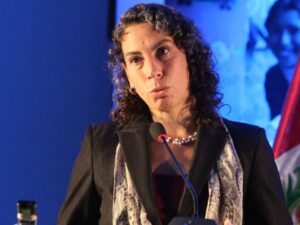





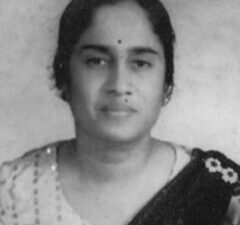
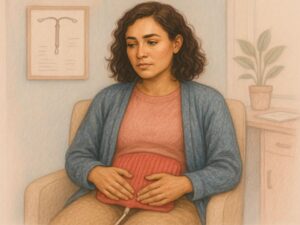

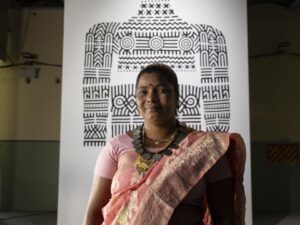

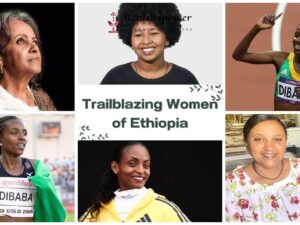




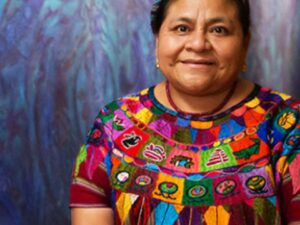
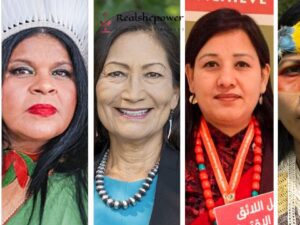


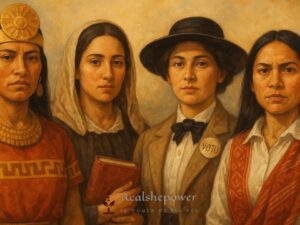

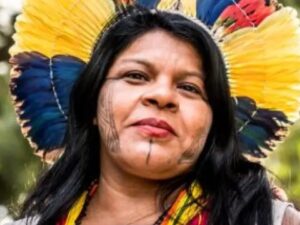


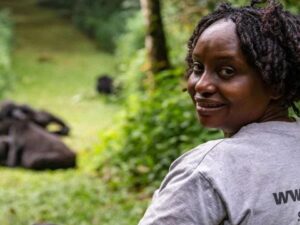
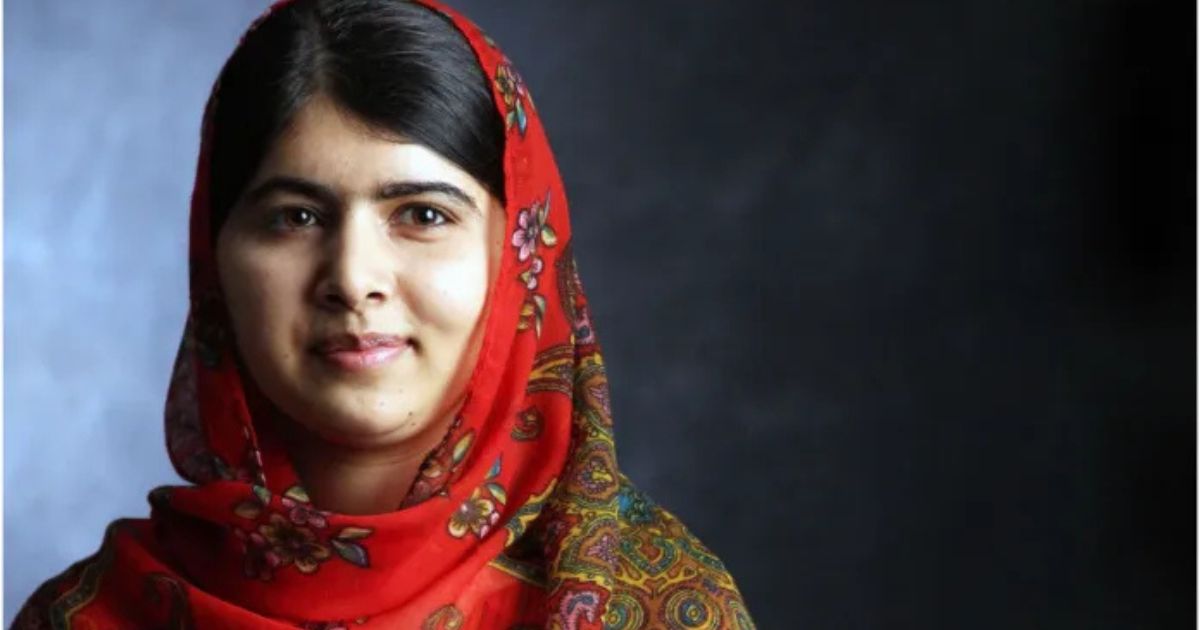
1 thought on “From South Africa’s Shadows to Global Impact: The Inspiring Journey of Freweini Mebrahtu”